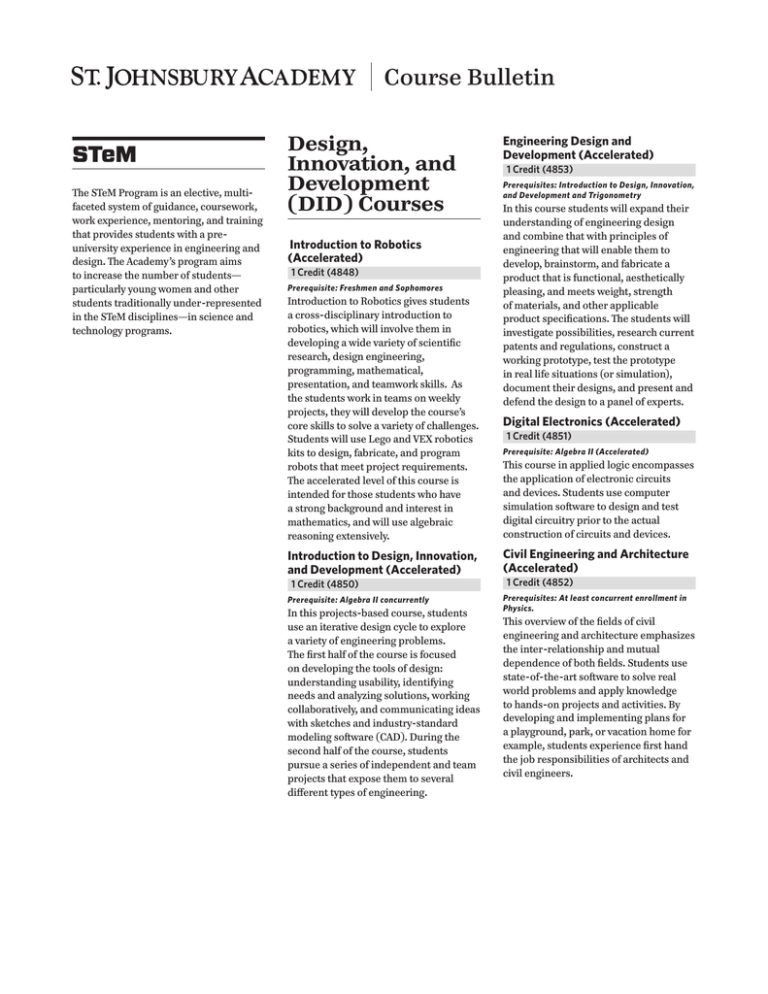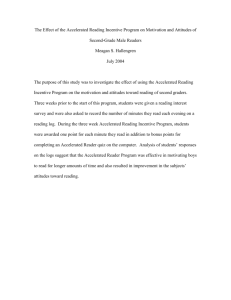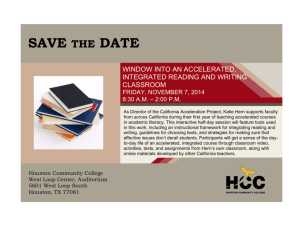STeM Course Bulletin - St. Johnsbury Academy
advertisement

Course Bulletin STeM The STeM Program is an elective, multifaceted system of guidance, coursework, work experience, mentoring, and training that provides students with a preuniversity experience in engineering and design. The Academy’s program aims to increase the number of students— particularly young women and other students traditionally under-represented in the STeM disciplines—in science and technology programs. Design, Innovation, and Development (DID) Courses Introduction to Robotics (Accelerated) 1 Credit (4848) Prerequisite: Freshmen and Sophomores Introduction to Robotics gives students a cross-disciplinary introduction to robotics, which will involve them in developing a wide variety of scientific research, design engineering, programming, mathematical, presentation, and teamwork skills. As the students work in teams on weekly projects, they will develop the course’s core skills to solve a variety of challenges. Students will use Lego and VEX robotics kits to design, fabricate, and program robots that meet project requirements. The accelerated level of this course is intended for those students who have a strong background and interest in mathematics, and will use algebraic reasoning extensively. Engineering Design and Development (Accelerated) 1 Credit (4853) Prerequisites: Introduction to Design, Innovation, and Development and Trigonometry In this course students will expand their understanding of engineering design and combine that with principles of engineering that will enable them to develop, brainstorm, and fabricate a product that is functional, aesthetically pleasing, and meets weight, strength of materials, and other applicable product specifications. The students will investigate possibilities, research current patents and regulations, construct a working prototype, test the prototype in real life situations (or simulation), document their designs, and present and defend the design to a panel of experts. Digital Electronics (Accelerated) 1 Credit (4851) Prerequisite: Algebra II (Accelerated) This course in applied logic encompasses the application of electronic circuits and devices. Students use computer simulation software to design and test digital circuitry prior to the actual construction of circuits and devices. Introduction to Design, Innovation, and Development (Accelerated) Civil Engineering and Architecture (Accelerated) Prerequisite: Algebra II concurrently Prerequisites: At least concurrent enrollment in Physics. 1 Credit (4850) In this projects-based course, students use an iterative design cycle to explore a variety of engineering problems. The first half of the course is focused on developing the tools of design: understanding usability, identifying needs and analyzing solutions, working collaboratively, and communicating ideas with sketches and industry-standard modeling software (CAD). During the second half of the course, students pursue a series of independent and team projects that expose them to several different types of engineering. 1 Credit (4852) This overview of the fields of civil engineering and architecture emphasizes the inter-relationship and mutual dependence of both fields. Students use state-of-the-art software to solve real world problems and apply knowledge to hands-on projects and activities. By developing and implementing plans for a playground, park, or vacation home for example, students experience first hand the job responsibilities of architects and civil engineers. Biotechnical Engineering (Accelerated) 1 Credit (4854) Prerequisites: Biology and Chemistry (Accelerated) grade >85 or (Standard) grade >90 and Algebra II (Accelerated) The major focus of the Biotechnical Engineering course is to expose students to the diverse fields of biotechnology including biomedical engineering, biomolecular genetics, bioprocess engineering, and agricultural and environmental engineering. Lessons engage students in engineering-design problems that can be accomplished in a high-school setting related to biomechanics, cardiovascular engineering, genetic engineering, agricultural biotechnology, tissue engineering, biomedical devices, human interface, bioprocesses, forensics, and bioethics. Admissions Office 1000 Main Street St. Johnsbury, Vermont 05819 (802) 751-2130 admissions@stjacademy.org stjacademy.org Game Design (Accelerated) 1 Credit (4855) Prerequisite: Geometry Students will work through the process of game design from developing a concept to testing a product. The course will begin by teaching principles of design via table top games, and then progress to drag-and-drop programming of a video game, and finally to editing scripting languages to program a game in greater complexity. Throughout the course, students will complete a variety of projects that lead to a final, original video game design. Outside experts from industry and academia will give their perspectives on careers in game design, and serve as evaluators for student projects. No prior programming experience is required.



